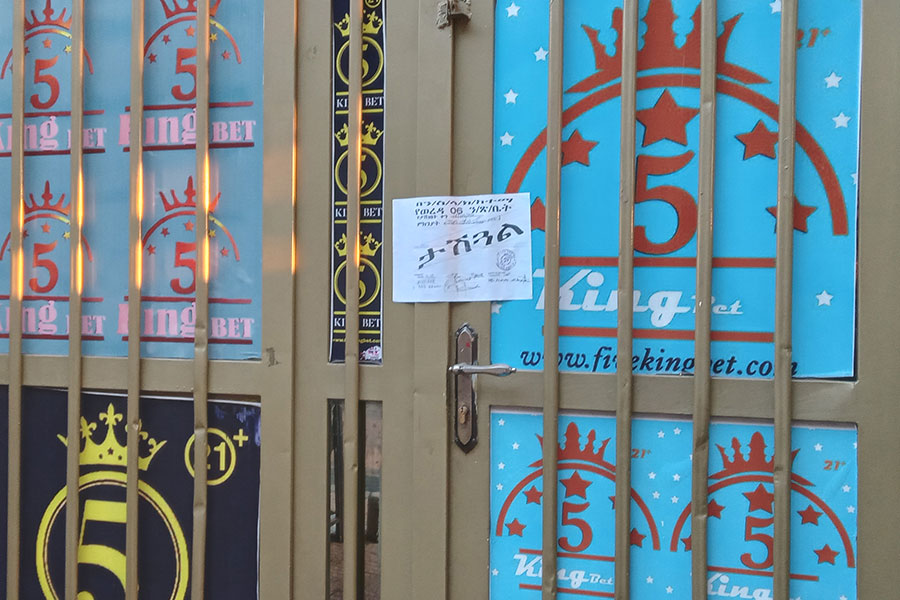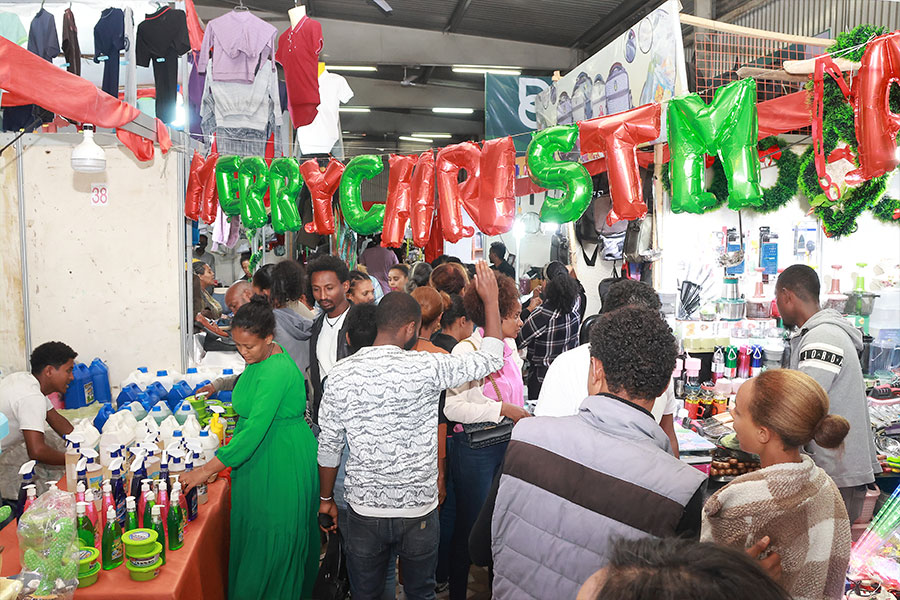
Featured |
Gebremeskel Chala, minister of Trade & Regional Integration (MoTRI), has rescinded a decision to double the minimum price threshold for khat exported to Somalia to 10 dollars a kilo. Last week, he instructed the threshold to return to five dollars a kilo, a value maintained for the past 20 years.
Exporters are compelled to charge buyers in Djibouti, which account for a fifth of all khat exports, no less than six dollars a kilo.
The Minister's reversal comes following complaints from Somalia's newly elected government under President Hassan Sheikh Mohamud (HSM). The decision also coincides with President Mohamud's first official trip to Kenya last week, where he inked trade deals with President Uhuru Kenyatta. An agreement for the resumption of khat trade between the two countries was one of the highlights of the President's visit to Nairobi.
Mohamud had served as Somalia's president for five years, beginning in 2012.
No shipments of Kenyan khat have made it to Somalia since 2020. Two years ago, Mogadishu banned air cargo due to the COVID-19 pandemic. The ban remained in effect until last week.
Before the embargo, Kenya exported close to 55,000tn of khat to Somalia annually, generating close to 50 million dollars.
The stakes are much higher for Ethiopia, which earns eight times as much from Khat exports. Somalia accounts for close to 80pc of the export earnings from the cash crop.
The abrupt changes in the threshold price reflect poorly on Ethiopia, says Michael Tilahun, deputy country director of the Department for International Trade (DIT), a United Kingdom (UK) agency for negotiating and extending trade agreements.
“The government is imposing these prices without regard to the principles of bilateral trade, which dictates any party must consult with the other before making any decisions that can affect the trade volume,” he said.
Khat has been Ethiopia’s primary cash crop since the early 2000s. It remains among the top revenue-generating export commodities, sharing the status with coffee, cut flowers, and gold. Its exports accounted for 11pc of the 3.6 billion dollars generated last year. It represents a quarter more than khat export revenues recorded the previous year.
The federal government planned to generate 413 million dollars from Khat export in the fiscal year that ended earlier this month. It is unlikely that officials meet their forecast as little more than half the revenues were generated over the first eight months of the year.
The khat export business has been experiencing turbulence in recent months. Trouble began to loom last April when the Trade Minister doubled the price threshold for khat shipped to Somalia, and compelled exporters to register with his Ministry. Officials said the introduction of stringent export procedures was meant to curb "growing illicit trade activities." They claimed to have identified hundreds of exporters allegedly practising over-invoicing, a week before the decision to impose strict rules.
The authorities revoked the trade licenses of no less than 830 khat exporters.
In May, the Minister decreed that exporters must present contracts with overseas buyers before permitted to send their goods abroad. In the subsequent month, Gebremeskel enacted a temporary embargo on all khat export contracts while his experts "redress problems in the registration of contracts." His moves, however, affect the country's foreign currency earnings, discouraging exporters from shipping the cash crop.
Sura Plc, incorporated a decade ago with Ali Mohammed as a significant shareholder, used to export up to 300Kg of Khat to Somalia and Kenya daily. The company has seen volumes dwindle to half in recent months.
“Most buyers in Mogadishu refused to place orders due to the price increase,” Ali told Fortune.
Ali, running his business from Dire Dawa, a hub for Khat exporters, says he is incurring losses due to the perishable nature of the cash crop. He is hardly alone.
Daniel Gezmu has been exporting Khat to neighbouring countries and the Middle East for the past 13 years. He shipped up to 10 quintals a week before the series of restrictions took a bite on his business.
“The measures complicated the export procedures on top of extending the time required to process the shipment,” he said.
Previously, Khat exporters processed applications for a permit through a single-window system – a process that would often take less than an hour, according to Daniel.
“It's taking up to a week now,” he said.
Kumneger Abebe, director of communications at the Trade Ministry, says khat exports have not been blocked.
“Contracts that the Ministry has already approved are still valid,” she said. “Exporters can still ship their items to Somalia based on the revised threshold."
PUBLISHED ON
Jul 17,2022 [ VOL
23 , NO
1159]

Featured |

Fortune News | Jul 31,2021

Fortune News | Aug 23,2025

Life Matters | Dec 02,2023

News Analysis | Mar 09,2024

Radar | Mar 16,2024

Featured | Jan 07,2024

Viewpoints | Mar 02,2019

Radar | Aug 20,2024

Fortune News | Jan 07,2022

Dec 22 , 2024 . By TIZITA SHEWAFERAW
Charged with transforming colossal state-owned enterprises into modern and competitiv...

Aug 18 , 2024 . By AKSAH ITALO
Although predictable Yonas Zerihun's job in the ride-hailing service is not immune to...

Jul 28 , 2024 . By TIZITA SHEWAFERAW
Unhabitual, perhaps too many, Samuel Gebreyohannes, 38, used to occasionally enjoy a couple of beers at breakfast. However, he recently swit...

Jul 13 , 2024 . By AKSAH ITALO
Investors who rely on tractors, trucks, and field vehicles for commuting, transporting commodities, and f...

Nov 1 , 2025
The National Bank of Ethiopia (NBE) issued a statement two weeks ago that appeared to...

Oct 25 , 2025
The regulatory machinery is on overdrive. In only two years, no fewer than 35 new pro...

Oct 18 , 2025
The political establishment, notably the ruling party and its top brass, has become p...

Oct 11 , 2025
Ladislas Farago, a roving Associated Press (AP) correspondent, arrived in Ethiopia in...